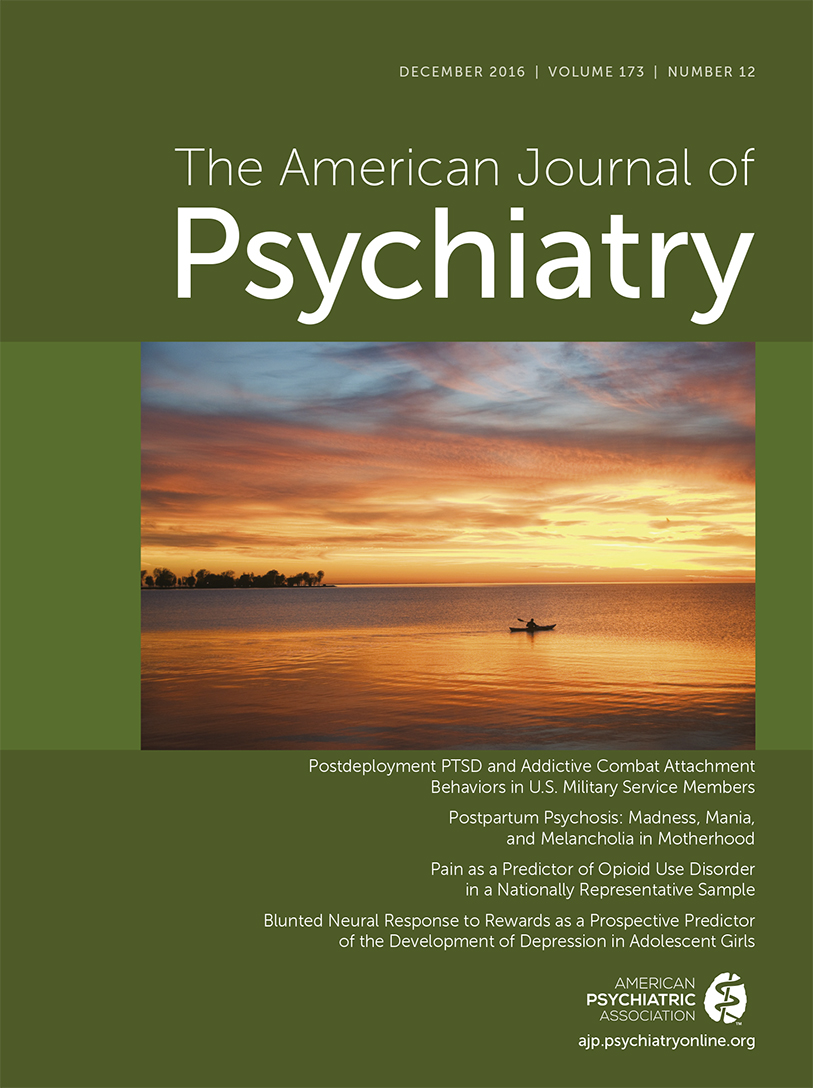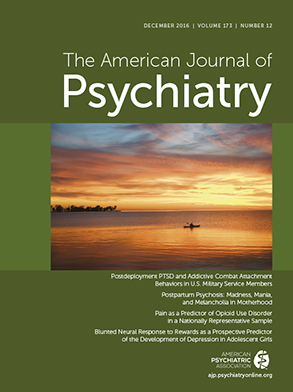To the Editor: We appreciate the opportunity to respond to the letters to the editor sent to the Journal regarding our article, “A Framework for Extending Psychiatrists’ Roles in Treating General Health Conditions,” that was published in the July 2016 issue. In particular, we are happy to clarify some of the rationale for the framework provided and to address concerns that psychiatrists and primary care physicians alike may have with an expansion of the traditional scope of psychiatric practice.
Central to the arguments promoted by Drs. Rosen and Arbuckle are concerns for safety and competence. Both letters raise concern with psychiatric training and medical knowledge. Dr. Arbuckle correctly points out that requirements set by the Accreditation Council for Graduate Medical Education (ACGME) for general medical training of psychiatrists are draconian and in need of drastic change—we wholeheartedly agree and strongly support her call for a critical review of standards from the ACGME and the American Board of Psychiatry and Neurology in assessing general medical training and requirements of psychiatric postgraduate experiences, with an eye toward providing future practitioners with the skill set necessary to address the needs of the population they will be treating.
Dr. Rosen argues that psychiatrists are fundamentally of a different culture than primary care clinicians. He further argues that the two cultures of subspecialty medicine and general primary care should not be blended—that they are distinct philosophies. In fact, primary care and psychiatry have much in common, especially in managing complex populations with chronic illnesses. Both fields recognize the sociological determinants of disease and the public systems contributing to those morbidities. Both fields share the desire to engage patients over time in their care, developing meaningful long-lasting relationships that can be leveraged into healthy behavioral choices and improved outcomes. In this way, depression, diabetes, alcohol use disorder, and schizophrenia have much in common: they are chronic, incurable illnesses, and persons suffering from them need assistance and partnership in learning to manage them over time. It is exactly these kinds of chronic, nonurgent conditions that most severely affect our patient population, erode patients’ lives over time, and lead to premature mortality. Part of the compelling nature of integrated care programs is exactly this recognition—that the field of behavioral health has much to add to primary care for managing chronic, noncurable illness. Culturally, the two disciplines are merging closer and closer together. As the morbidity of our population shifts over time, so too should the skill sets and culture of our medical profession.
Many psychiatrists are choosing to act to address these conditions every day. Many have attended our APA courses on primary care skills, and they do so out of a realization that inaction in the face of known threats is a form of harm, and the risks of action (i.e., starting an antihypertensive medication) are relatively low compared with the long-term benefits of disciplined blood pressure control. We argue within the proposed framework that practitioners ensure that their knowledge is up to date and seek consultation with other colleagues (e.g., primary care clinicians) to ensure they are well within the bounds of current standards of care. We also call for psychiatrists to carefully consider the systematic capacity of their clinical settings before engaging in physical health management, realizing that without routine access and support for laboratory monitoring or vital sign monitoring, the psychiatric skill set should not be extended. We have found that while these considerations are often lacking in current practice and are an important component of the decision to widen clinical management, innovations in many community behavioral health systems are making laboratory and vital sign monitoring much more feasible, and this is becoming less of a barrier.
Many subspecialist clinicians and advanced nurse practitioners would take umbrage to the suggestion by Dr. Rosen that they are practicing “partial medicine.” Indeed, this attempt to embrace the entirety of one’s health concerns is, in its efforts, antithetical to the notions of partial medicine. If nothing else, the status quo health care system engenders the delivery of partial medicine through the lens of fragmented subspecialists. The existing APA course offerings highlight the importance of considering alternative causes of hypertension, occurring in just 5%−10% of the general population, and close monitoring for drug-drug interactions between common psychotropics and antihypertensives, for example. The APA primary care skills course is specially tailored to considerations for managing these common modifiable cardiovascular risk factors in psychiatric patient populations. A psychiatric clinician should already be considering a broad differential diagnosis and comprehensive medical history of patients and indeed may be better positioned to recognize the toll of substance use and alternative causes of hypertension than many primary care clinicians. Unless standards of care have changed, a comprehensive evaluation entailing detailed laboratory analysis, an echocardiogram, a renal ultrasound, cortisol testing, etc. is not part of the initial treatment approach for hypertension within the general adult population.
Finally, a large focus of developing combined-training programs in general medical care and psychiatry has been to bring better access to behavioral health care to primary care settings, and vice versa. We applaud those physicians who, in spite of significant constraints within the health care system, can continue to practice at the height of their certification. The sheer limits on training length and number of opportunities, though shifting nationally, are such that combined-trained clinicians alone cannot meet the workforce demands for the delivery of integrated medical and behavioral health care. As such, we agree with both authors’ assertions that better psychiatric training is needed for future primary care practitioners as well as better primary care training for psychiatric practitioners. This is the exact impetus for this framework—to guide clinicians and health systems in these efforts so that they are prepared to address the care needs of the populations they encounter today and will encounter tomorrow.

